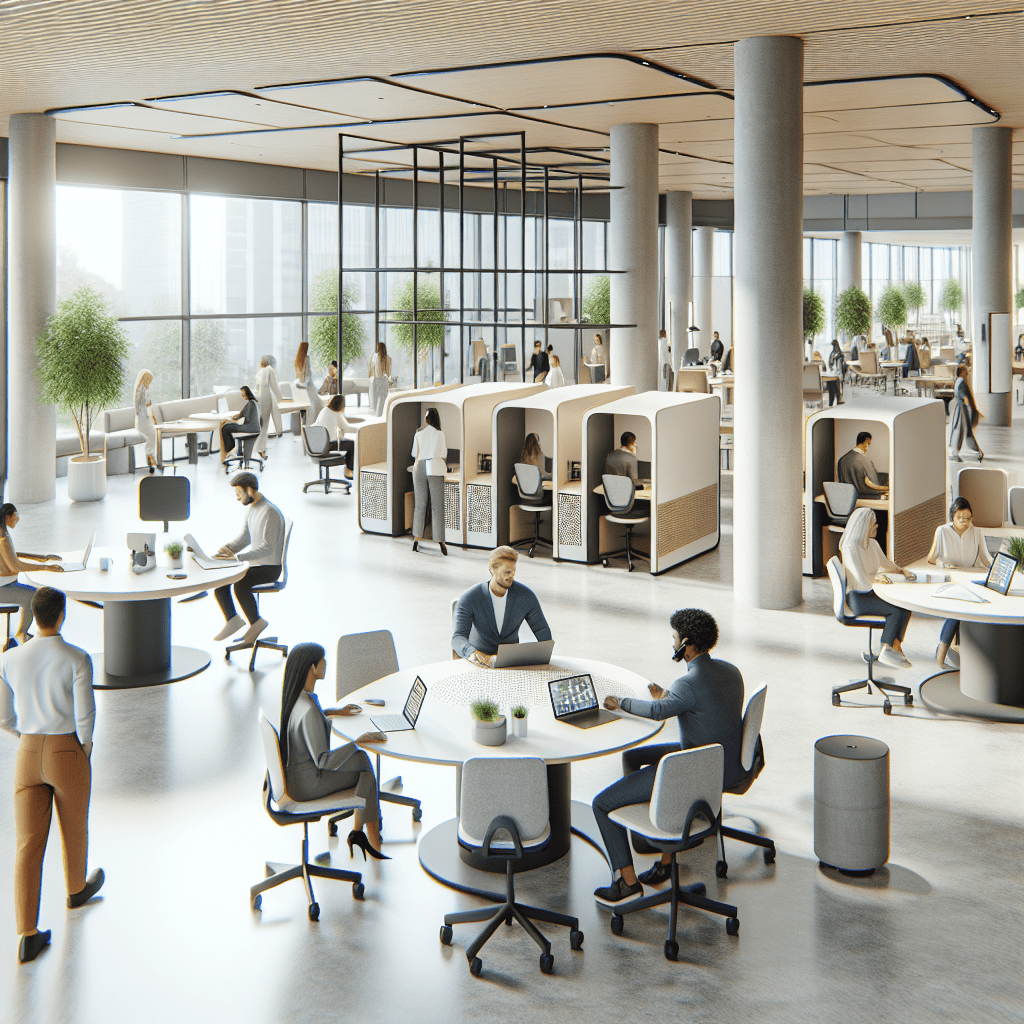How Flexible Workspaces Can Boost Productivity

In the modern business world, the concept of a flexible workspace has become synonymous with productivity and innovation. With the growing trend of coworking, hybrid working, and shared spaces, companies and individuals are reaping the benefits of a more adaptable approach to the work environment.
But how exactly do flexible workspaces contribute to increased productivity? In this article, we’ll delve into the advantages of flexible workspaces and how they can transform your work life for the better.
The Rise of Flexible Workspaces
The landscape of work has undergone a significant transformation in recent years. The traditional 9-to-5 office setup is being challenged by the rise of flexible workspaces – environments that adapt to the needs of their users, offering various working scenarios from hot-desking to private serviced offices.
What Are Flexible Workspaces?
Flexible workspaces are designed to provide a variety of work settings that cater to different tasks and working styles. These spaces often include open-plan areas, private meeting rooms, communal lounges, phone booths, and even relaxation zones. They are typically equipped with high-speed internet, ergonomic furniture, and other office essentials, making them an attractive option for freelancers, startups, and even large corporations.
Coworking and Hybrid Working Models
Coworking spaces are shared environments where individuals from different companies can work alongside each other. This collaborative atmosphere often leads to networking and partnership opportunities. Hybrid working, on the other hand, is a model where employees split their time between working from home and an office. Flexible workspaces accommodate both of these modern working styles by providing the necessary infrastructure and a professional setting when needed.
Productivity Advantages of Flexible Workspaces
One of the most significant benefits of flexible workspaces is the positive impact they have on productivity. Let’s explore the reasons behind this boost.
Enhanced Collaboration and Networking
Flexible workspaces foster an environment of collaboration. The shared spaces are hotbeds for networking, allowing professionals to connect, exchange ideas, and collaborate on projects. This community-driven atmosphere can lead to new business opportunities and shared knowledge that can enhance one’s work.
Customized Environments for Different Tasks
The ability to choose a workspace that aligns with the task at hand is a game-changer. Whether you need a quiet corner for focused work, a spacious table for team brainstorming, or a comfy sofa for a casual meeting, flexible workspaces offer it all. This adaptability can significantly enhance productivity by allowing individuals to work in the most conducive setting for each specific task.
Access to High-Quality Amenities
Flexible workspaces come equipped with state-of-the-art amenities that might be otherwise inaccessible, especially for small businesses and freelancers. From cutting-edge technology to fully stocked kitchens and on-site support staff, these facilities create an efficient and enjoyable work environment that boosts productivity.
Elimination of Commuting Stress
With flexible workspaces often located in various neighborhoods, individuals can choose a location that minimizes their commute. Less time spent traveling to and from work can lead to a better work-life balance, reduced stress, and more energy to focus on work-related tasks.
Cost-Effectiveness and Scalability
Flexible workspaces not only enhance productivity but also offer financial benefits that can be particularly attractive to businesses.
Reduced Overhead Costs
Traditional office spaces come with long-term leases and a plethora of overhead costs, including maintenance, utilities, and office supplies. Flexible workspaces, by comparison, typically operate on short-term leases or membership models that include most of these costs, allowing businesses to save money and invest it back into growth and development.
Scalability for Growing Businesses
For startups and expanding companies, the scalability of flexible workspaces is invaluable. As a business grows, it can easily accommodate more employees without the need for a disruptive move to a larger office. This flexibility reduces downtime and keeps productivity high.
Supporting Work-Life Balance
Flexible workspaces can also contribute to a better work-life balance, which is essential for long-term productivity and employee satisfaction.
Encouraging Autonomy and Flexibility
When individuals have the autonomy to choose where and how they work, they’re often more motivated and engaged. Flexible workspaces allow employees to work in ways that best suit their personal lives and professional responsibilities, leading to a happier and more productive workforce.
Promoting Wellness and Mindfulness
Many flexible workspaces are designed with wellness in mind, offering features like natural lighting, plants, and relaxation areas. Some even provide wellness programs, fitness classes, or meditation spaces. These initiatives can reduce burnout and ensure that employees are performing at their best.
The Future of Work
As we look ahead, it’s clear that flexible workspaces will continue to play a crucial role in shaping the future of work.
Adapting to Technological Advances
The integration of technology into flexible workspaces will become increasingly important. From virtual reality conferencing to AI-powered personal assistants, these spaces will need to adapt to the latest technological advances to remain cutting-edge and productive.
Environmental Sustainability
Sustainability is becoming a priority for businesses and workers alike. Flexible workspaces have the potential to lead the charge in eco-friendly practices by optimizing resource use and minimizing waste, which can also contribute to a positive company image and employee pride.
Inclusivity and Diversity
Flexible workspaces are uniquely positioned to promote inclusivity and diversity by providing accessible and accommodating environments for a wide range of individuals and businesses. This diversity can enrich the workspace community and lead to more innovative and productive outcomes.
Conclusion
Flexible workspaces are more than just a trend; they represent a shift in the way we think about work and productivity. By offering an adaptable, cost-effective, and collaborative environment, they support a modern workforce that values autonomy, wellness, and work-life balance. As the concept of work continues to evolve, flexible workspaces will undoubtedly play a pivotal role in shaping the workplaces of the future.
Whether you’re a freelancer, part of a startup, or a member of a large corporation, exploring the advantages of flexible workspaces could be the key to unlocking greater productivity and success.
